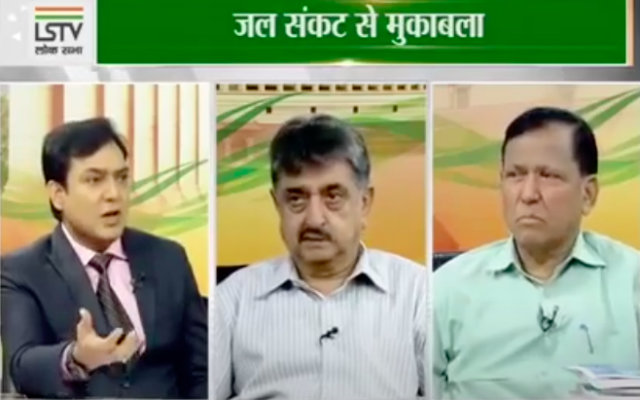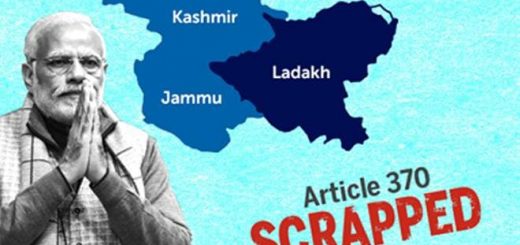Niti Aayog’s Report on Water Scarcity in India

BTP Students: Sejal Kumar / Aysha Fazilath / Rahul Patwardhan / Vyshakh Dharan
Prof. Manohar Khushalani appeared Live, as a Panelist in the Lok Sabha TV Program INSIGHT on, Monday, 18th June 2018 at 1 pm and again at 4 pm. The discussions were on Niti Aayog’s report, titled ‘Composite Water Management Index’ (CWMI). An intense and productive discussion was held on issues confronting the nation concerning the water crisis in India and the world. Dr. T. Haque, from Niti Ayog, was Khushalani’s co-panelist. Pratibimb Sharma was the Anchor of the Program
According to Niti Aayog’s report on water scarcity published in 2018, India is going through the worst water crisis situation it has ever seen. More than sixty crores of its population are facing this issue and around two lakh die every year. This report discusses the plans made by the government to curb this issue and the position they have reached to achieve the goal in the predicted timeline. This has been done in order to make a competitive framework between the states to keep a check on where they stand and what they can do to get to a better situation.
Twenty-one cities including Indore, Bhopal, and NDMC area have switched to the cleaner city lists after constant efforts. According to the rankings, 5 states – Gujarat, Madhya Pradesh, Andhra Pradesh, Karnataka, and Maharashtra are working the most towards fixing the situation. Their practices have been mentioned in the report as an inspiration for other states to see and apply. These ranks have been given on the basis of 9 key areas, for example, the state with best groundwater plans has been given 15 points, improvement in lakes and other water bodies is given 5 points, and so on.
The discussion takes us through the gaps between what the report discusses and the major issues that need to be tackled. The report informs us about what the states have done by far but will this help to intercept the problems that lie in front of us in time?
Prof. Manohar Khushalani then adds that the country is receiving the required amount of rainwater, but the problem is that it is not managed well by the government and the citizens. Reasons being lack of awareness among citizens, constant fighting between states, and inability or lack of knowledge to conserve rainwater. We are a lucky nation to have this huge amount of rainfalls spread across the country but we lack proper planning. One holistic approach is needed towards making and managing proper schemes.
According to Dr. T Haque, awareness has increased amongst citizens in the civil society and they are taking steps to increase the water harvesting practices but facts say that leakages at houses contribute to a large percentage of water being wasted.
Khushalani also talks about the 70 percent water being contaminated as mentioned in the report. It is very important that the water that goes below the ground is being filtered. The water below the ground is connected. So, it is very important to monitor water harvesting as well.
Talking about the utilization of water among farmers, when they were given the free electricity incentive they started using groundwater more than required. Now, when they are asked to use less water or practice micro-irrigation to grow their crops, they have no incentive to be drawn to this new practice. This is a very big area where the government can focus on. Even for the citizens, this is a big question that can come up, what’s in it for me?
There has been a lack of vision despite the efforts taken by the government. The state and the central government needs to be aligned to make better decisions. It is very much possible as some of the decisions taken in the past have proved to be very fruitful. The report has helped in creating awareness in terms of where the states stands and the positive impact of this will be seen in the coming future. This report with the inputs of people will help create a better understanding of what more needs to be done in order to solve the crisis at hand.
For more information please visit the link : https://youtu.be/hohvMVZvPcQ



